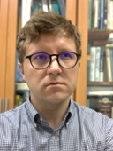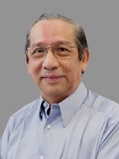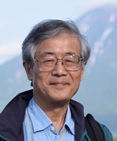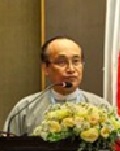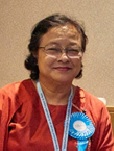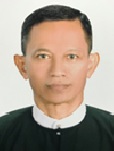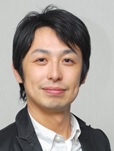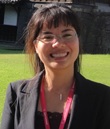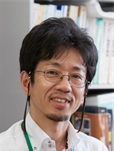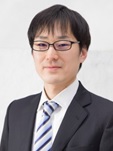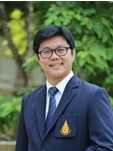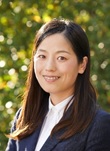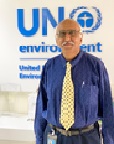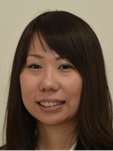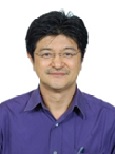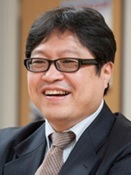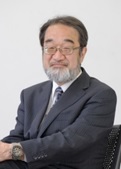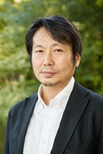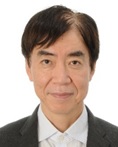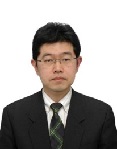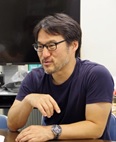6th International Forum on Sustainable Future in Asia 6th NIES International Forum
January 19-20, 2021 Online Webinar style(Zoom)
- Top
- Day1 Expert Workshop
- Day2 Open Symposium
- Speakers
- Report
Our society changes for strengthening the movement toward the realization of a sustainable society with adopting the Sustainable Development Goals (SDGs) and the Paris Agreement.
This year’s Forum focus on three key issues that NIES has been continuously implemented in Asia – (1) Global Environmental Research Post COVID-19, (2)Environmental Factors are Major Health Concerns in Asian Countries, (3) Sustainable Consumption and Production in Asia. And we will also hold an open symposium in the form of panel discussion regarding the medium- to long-term direction of future environmental research in Asia with the post-COVID-19 world.
Each participant including presenters from Asian countries and other foreign countries will participate online. Anyone can attend the open symposium after registration.
We look forward to your participation.
| Date | January 19-20*, 2021 |
|---|---|
| Venue | Online Webinar style (Zoom) *Presenter may show up at Tokyo Toranomon Global Square Conference, Tokyo, Japan or National Institute for Environmental Studies(NIES), Tsukuba, Japan |
| Registration | Free (Day1)Expert Workshop Session 1&2: Invitation Required Session 3: Open workshop (Register 【finished】) (Day2)Open Symposium (Register 【finished】) |
| Organizer | National Institute for Environmental Studies (NIES - Japan) |
| Co-organizers | The University of Tokyo, Institute for Future Initiatives (IFI, UTokyo - Japan) AIT Regional Resource Centre for Asia and the Pacific (AIT RRC.AP -Thailand) |
Contact
National Institute for Environmental Studies (NIES)
16-2 Onogawa, Tsukuba, Ibaraki 305-8506 JAPAN
E-mail: forum_2020@nies.go.jp
Day1 January 19, 2021
Opening Speech 13:30 - 13:40 JST
Dr. Chiho WATANABE
President, National Institute for Environmental Studies, Japan
Parallel Session 1 -3 13:40 - 18:00 JST
Session 1 13:40 - 18:00 JST
Theme: Global Environmental Research Post COVID-19
Session Overview:
The COVID-19 pandemic is a crisis that affects everyone and everything, that is not only spreading human suffering, infecting the global economy and upending people’s lives. While some point out that COVID-19 has brought down the intensity of carbon emissions which is one of the contributing factors to global warming, some others argue that the reduction in emissions is only a temporary phenomenon and emissions may go up in future. In this scenario, how this pandemic would change the nature of climate change politics (e.g. the framework of the 2030 Agenda for Sustainable Development and the Paris Agreement on Climate Change) in the long-run, still requires examination.
This session will invite the top class researchers from the major Asian countries to present their past, current and future (post COVID-19) research strategies concerning the nature environment.
Session Organizers: Dr. Naishen LIANG (NIES), Dr. Yoshiyuki TAKAHASHI (NIES)
Chairpersons: Dr. Yoshiyuki TAKAHASHI (NIES), Dr. Naishen LIANG (NIES)
Rapporteur: Dr. Naishen LIANG (NIES)
Presentations:
-
GHG Monitoring Activities in CGERDr. Hitoshi MUKAI Director, Center for Climate Change Adaptation, NIES, Japan
-
The Trilemma in Coping With COVID-19 and Visioneering: Complex Systems ViewDr. Joon KIM Professor, Department of Landscape Architecture & Rural Systems Engineering, Seoul National University, Korea
-
Rethinking Thai Carbon Cycle Research Strategies in the New Normal Post COVID-19 EraDr. Poonpipope Kasemsap Director, Horticulture Innovation Lab Regional Center, Kasetsart University, Thailand
-
The Use of Smart Forest System in Post COVID-19 on Forest Management and ConservationDr. Ismail Parlan Director, Forest Research Institute Malaysia, Malaysia
-
Ageing and Population Decline: Implications for Sustainability in the Urban Century in Japan and GloballyDr. Marcin Pawel JARZEBSKI Project Assistant Professor, Tokyo College, The University of Tokyo, Japan
-
Bringing Science and Innovation for the Future of Indonesia's Peatland Landscape RestorationDr. Haris Gunawan Deputy of Research & Development, Peatland Restoration Agency, Indonesia
-
COVID-19: Its Effect on Nomadic Pastoralism and Nature Conservation Issues in MongoliaDr. Bayarsaikhan UUDUS Associate Professor, Ecology group in Department of Biology, School of Arts and Sciences of National University of Mongolia, Mongolia
-
Progress in Observation and Research of ChinaFLUXProf. GuiRui YU Academician, Institute of Geographic Sciences and Natural Resources Research, Chinese Academy of Sciences, China
Session 2 13:40 - 18:00 JST
Theme: Environmental Factors are Major Health Concerns in Asian Countries
Session Overview:
According to WHO, an estimated 12.6 million deaths each year are attributable to unhealthy environments. Environmental risk factors, such as air, water and soil pollution, chemical exposures, climate change and ultraviolet radiation, contribute to more than 100 diseases and injuries. Air pollution continues to pose a significant threat to health worldwide. Many countries around the world do not have regulations on air pollution. Early warning and prevention of harmful effects of chemicals including persistent organic pollutants (POPs) to which humans are being increasingly exposed are essential to prevent potential risks to human health. Assessment of health impact provides decision makers with information about how any policy, program or project may affect the health of people. Well-designed sustainable development strategies across transport, housing and energy sectors can lead to multiple achievements for health, climate and the environment. In this session, we will share our research knowledge of current environmental issues and introduce novel assessment and screening methods used in environmental health research. Finally, we hope to create environmental research network between Asian countries.
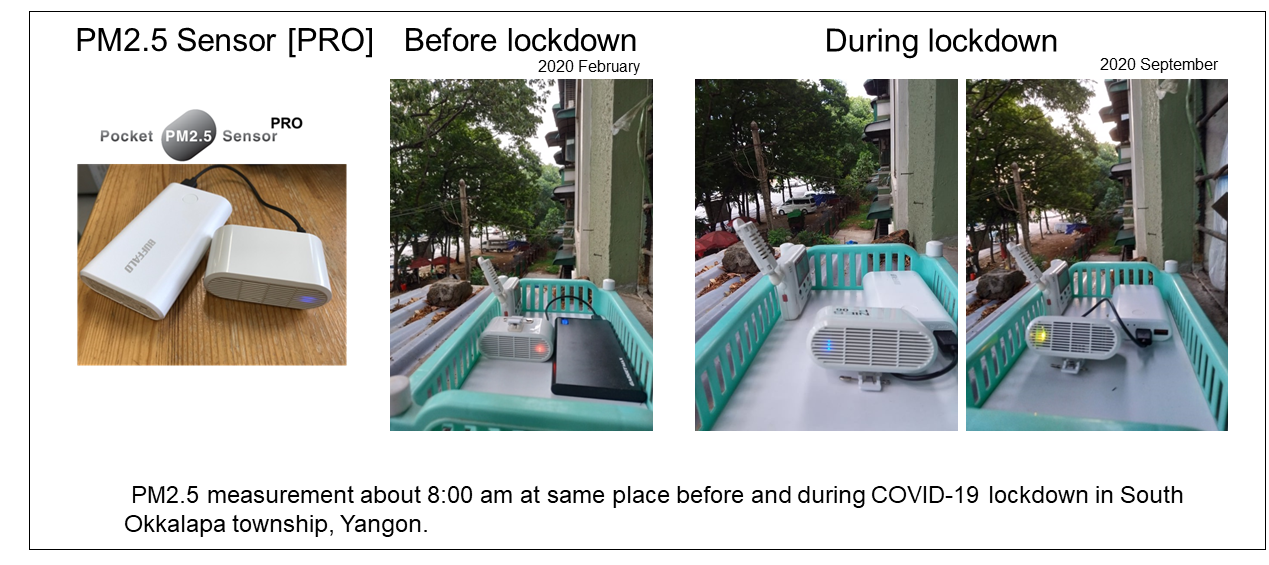
Session Organizers: Dr.Daisuke NAKAJIMA (NIES), Dr. Tin Tin Win Shwe (NIES)
Chairpersons: Prof. Dr. Than Htut (University of Public Health, Myanmar),
Dr. Yasuyuki SHIBATA (Tokyo University of Science/NIES)
Rapporteur: Dr. Satoshi ENDO (NIES)
Presentations:
-
Recent Health Activities in Response to COVID-19 in MyanmarProf. Dr. Zaw Wai Soe Rector, University of Medicine 1, Yangon, Myanmar
-
Impact of Lockdown on Air Quality in Myanmar and Some Asian Countries during COVID-19 PandemicProf. Dr. Ohn Mar Professor and Head, Department of Physiology, University of Medicine 1, Yangon, Myanmar
-
Individual’s Awareness, and Mental Health and Psychosocial Consequences Regarding COVID-19 PandemicDr. Soe Min Senior Consultant Psychiatrist/ President-elect, Mental Health Society, Myanmar Medical Association, Myanmar
-
Regional Cooperation and Environment and Health Issues of ConcernMs.Kakuko Nagatani-Yoshida Regional Coordinator for Chemicals, Waste and Air quality, Asia and the Pacific Office, UN Environment Programme, Thailand
-
Chemical Substance Monitoring to support the Stockholm and the Minamata ConventionsDr. Yasuyuki SHIBATA Vice Director, Environmental Safety Center, Tokyo University of Science , Japan/ Visiting Researcher, NIES, Japan
-
Characteristics of Airborne PM2.5 from Nursery Pig House and its Mechanism of Inducing Inflammatory Response in Alveolar MacrophagesProf. Dr. Chunmei Li Professor, Nanjing Agricultural University, China
-
Fate of Antibiotic Resistant Bacteria from Wastewater to Water EnvironmentDr. Ryo HONDA Associate Professor, Kanazawa University, Japan
-
Comprehensive Analysis of Organic Micro-pollutants in Ambient Air Particulate Matter in HanoiDr. Hanh Thi DUONG Researcher, Institute of Environmental Technology, Vietnam Academy of Science and Technology, Vietnam
Session 3 13:40 - 16:30 JST
Theme: Sustainable Consumption and Production in Asia
Session Overview:
Ensuring Sustainable Consumption and Production (SCP) patterns in emerging economies is an important task for the achievement of Sustainable Development Goal 12 by 2030. However, progress on the Goal 12 in Asia has lagged behind progress on all of the other SDGs in the region according to the United Nations ESCAP (2019). This session covers a wide range of topics in SCP from its concept and future vision to reality and field survey as well as from pollution control to improvement of resource and energy efficiency. Invited speakers will share their up-to-date research results and insights that could advance the progress of SCP in Asia. One of difficulties in SCP policy is that it refers to a variety of policy approaches and the scope of SCP policy in the world is expanding. Backcasting approach is an effective approach to understand what kind of SCP patterns could be formulated in Asia in the future. Drastic increase in energy consumption for cooling in tropic and humid climate in Asia in this century is a priority issue. Pollution control beyond the borders is necessary and uncovering missing flow of mercury is a challenge. These are the examples of the topics in this session.
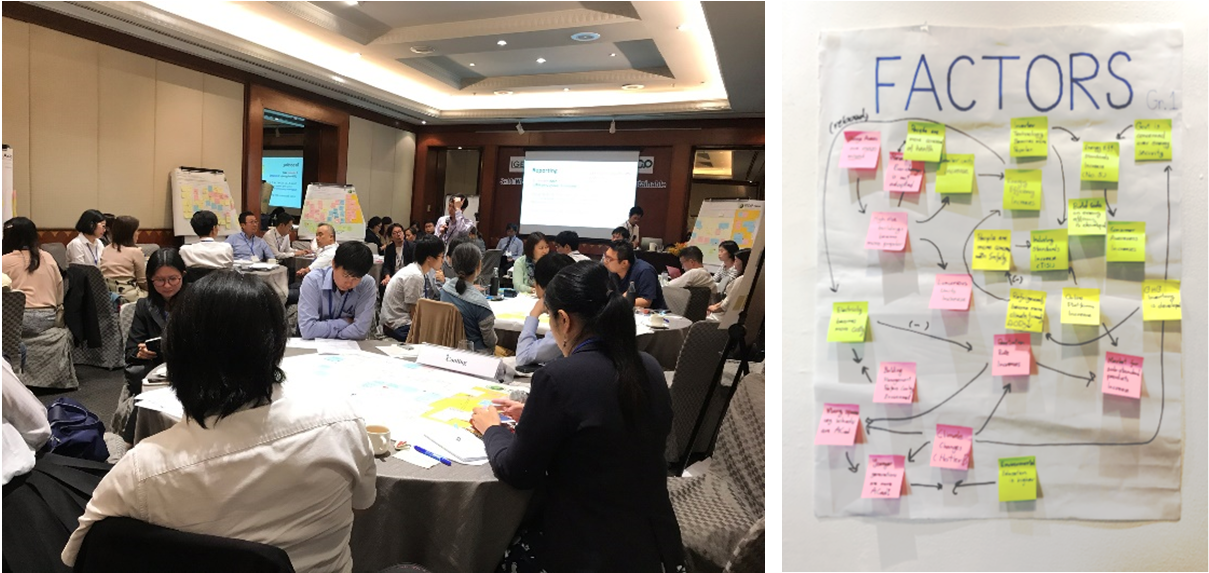
Session Organizers: Dr. Tomohiro TASAKI (NIES), Dr. Keisuke NANSAI (NIES)
Chairpersons: Dr. Aya YOSHIDA (NIES), Mr. Ryu KOIDE (NIES)
Rapporteur: Dr. Hiroyuki ISHIMORI (NIES)
Presentations:
-
A Collaborative Approach for Regional SCP in Asia: co-design, regional characteristics, and COVID-19Dr. Tomohiro TASAKI Head, Center for Material Cycles and Waste Management Research, NIES, Japan
-
Scenario Design Approach to Envisioning Sustainable Consumption and Production in Asian ContextDr. Yusuke KISHITA Lecturer, Department of Precision Engineering, School of Engineering, The University of Tokyo, Japan
-
Environmental Impacts of an Increase in Cooling Demands in Thailand: Evidences and Mitigation MeasuresDr. Panate MANOMAIVIBOOL Head of Research Center on Circular Economy for Waste-free Thailand (CEWT), School of Science, Mae Fah Luang University, Thailand
-
Artisanal and Small-scale Gold Mining (ASGM) and Mercury Trade FlowDr. Yingchao CHENG Research Associate, Center for Material Cycles and Waste Management Research, NIES, Japan
-
SDGs: Circular Economy to Manage Plastic PollutionDr. Mushtaq MEMON Regional Coordinator for Resource Efficiency, Asia and the Pacific Office, UN Environment Programme, Thailand
-
Analysis of Socio-economic Effects Induced by Local Resources Utilization: A Case of Utilization of Sugarcane Residue in Tanegashima, JapanDr. Yuko OSHITA Project Reseacher, Institute for Future Initiatives, The University of Tokyo, Japan
Day2 January 20, 2021
Online Webinar style(Zoom)
*Presenter may show up at Tokyo Toranomon Global Square Conference, Tokyo, Japan or
National Institute for Environmental Studies(NIES), Tsukuba, Japan
Theme
Linking Climate Change Action with Sustainability:
New Ways of Building a Sustainable Asia after COVID-19 and the Role of Environmental Sciences
Overview
With the adoption of United Nations’ Sustainable Development Goals and the Paris Agreement in 2015, the world began to shift increasingly toward building a sustainable society. To accelerate efforts towards social transformation and fundamentally changing how we live on Earth, the National Institute for Environmental Studies (NIES), the Institute for Future Initiatives at The University of Tokyo (IFI, UTokyo), and the Regional Resource Centre for Asia and the Pacific at the Asian Institute of Technology (AIT RRC.AP) are undertaking a broad range of environmental research activities for a sustainable future in a transdisciplinary and comprehensive manner in conjunction with leading global research institutes and universities.
The 2019 Corona Virus Disease (COVID-19) caused the ongoing global public health and economic crisis. Although some countries have appeared to control the pandemic, many countries continue to experience a rising number of cases and continue to fight against COVID-19. Despite these conditions, the global economy has begun efforts to return to its pre-COVID levels. While COVID-19 continues to present social, economic and health challenges in Asian countries, climate change and related anthropogenic activities also continue to impact vulnerable environments in the region.
The growing economies of Asia are certain to be vulnerable to climate risks. For example, Southeast Asia has a rich natural environment and a high proportion of the world’s remaining rainforest, although degradation of biodiversity caused by deforestation and forest degradation are serious problems. Tropical forests are expected to play a critical role in mitigating climate change by carbon sequestration and storage in the context of REDD+ and other global initiatives, but climate change is impacting terrestrial ecosystems as primary forests and peatlands continue to be developed or transformed to other uses. Sea-level rise and an increased threat of flooding are also areas of major concern. Flooding often occurs after high-intensity precipitation in urban areas, and downstream areas of the Mekong River Basin are facing many climate-related challenges. In addition, industrialization and urbanization, along with economic development, have led to sharp increases in energy consumption and waste production throughout Asia, and environmental changes and exposure to environmental contaminants is damaging health in various ways.
The idea of a “green recovery” is a new concept that aims to facilitate economic recovery from COVID-19 while simultaneously pursuing actions to address climate change. Many governments have considered green recovery measures, such as green transportation, clean energy research, ecosystem restoration, control of invasive alien species, and forest conservation in their plans for a post-COVID society. From this perspective, a green recovery represents a new opportunity for a transition to an environmentally sustainable society and is indispensable if Asian countries are going to realize economically and environmentally sustainable cities and regions in the face of both COVID-19 and the rapidly growing risks related to climate change.
To accelerate social transformation and fundamental changes under a green recovery strategy, adaptive and mitigative measures to climate change are being considered with increased urgency as solutions that facilitate smarter economic growth and improved public welfare in response to scientific forecasting of global warming impacts. Research institutes and universities, particularly those with a focus on environmental sciences, are expected to play a substantial role in a green recovery by designing and promoting new ways to build sustainable societies in Asia while working closely with governments, citizen groups, and business stakeholders.
As a step toward fostering a sustainable environment in Asia, NIES, IFI-UTokyo, and AIT RRC.AP have been organizing the International Forum on Sustainable Future in Asia on a regular basis since 2016 to bring together key stakeholders to share knowledge on key environmental challenges and solutions and to promote effective actions to satisfy the goals of global sustainability and regional prosperity within the Asia-Pacific region.
The open symposium of this year’s forum, the 6th International Forum on Sustainable Future in Asia, aims to facilitate exchanges of knowledge to link climate change actions with sustainability and to catalyze dialogue at the policy–research interface for a green recovery. This symposium will consider new ways of building a sustainable Asia after COVID-19 and the role of the environmental sciences in keynote speeches and panel discussions that will include participation and contributions by stakeholders in science, technology, and policy.
The organizers believe that this open symposium of the forum will stimulate discussions among stakeholders on ways to build a sustainable Asia, catalyze policy–research networking to formulate relevant science-based policies, and find feasible paths toward sustainable societies in Asia by converting aspirations into actions at the local, national, and regional levels.
Program
MC: Ms. Teruyo IEDA, Ms. Masumi SUDO (NIES)
Opening and Welcome Addresses 13:15 - 13:30 JST
Click here for YouTube video
Dr. Chiho WATANABE
President, National Institute for Environmental Studies, Japan
Dr. Naoya TSUKAMOTO
Director, AIT Regional Resource Centre for Asia and the Pacific, Thailand
Keynote Speeches 13:30 - 15:15 JST
-
Science-Based Climate Policy Making at the Local Level in Malaysia
- Lessons Learnt from Collaborative Work among Universities and Research Institutions
Click here for YouTube videoProf. Dr. HO Chin Siong Professor, Faculty of Built Environment and Surveying, Universiti Teknologi Malaysia, Malaysia -
Climate Change Adaptation and Related Activities in South Korea : Climate Change and Post Corona-19 EraDr. Soojeong Myeong Senior Research Fellow, Korea Environment Institute, Korea
-
Monitoring Wastewater: A Novel Environmental Infrastructure for Preventing Disease Outbreak in Urban Areas
Click here for YouTube videoProf. Kensuke FUKUSHI Vice Director, Institute for Future Initiatives, The University of Tokyo, Japan
Summary of the Expert Workshop 15:30 - 15:45 JST
-
Session 1: Global Environment Research Post COVID-19Dr. Naishen LIANG (NIES), Dr. Yoshiyuki TAKAHASHI (NIES)
-
Session 2: Environmental Factors are Major Health Concerns in Asian CountriesDr. Yasuyuki SHIBATA (Tokyo University of Science/ NIES)
-
Session 3: Sustainable Consumption and Production in AsiaDr. Hiroyuki ISHIMORI (NIES)
Panel Discussion 15:45 - 18:05 JST
Discussion Theme: New Ways of Building Sustainable Asia after COVID-19 and the Role of Environmental Sciences
Facilitator: Dr. Yuichi MORIGUCHI , Vice President, NIES
Panelists:
Prof. Dr. HO Chin Siong (UTM, Malaysia)
Dr. Soojeong Myeong (KEI, Korea)
Prof. Kensuke FUKUSHI (UTokyo, Japan)
Prof. Akimasa SUMI (UTokyo, Japan)
Prof. Tsuyoshi FUJITA (UTokyo/ NIES, Japan)
Dr. Naoya TSUKAMOTO (AIT RRC.AP, Thailand)
Prof. Dr. Than Htut (University of Public Health/ University of Medicine 1 , Myanmar)
Dr. Toshihiko MASUI (NIES, Japan)
Dr. Yuji MASUTOMI (NIES, Japan)
-
Introduction by Facilitator
-
Short Presentation from Panelists Click here for YouTube video
- Action for Climate Crisis after COVID-19 Prof. Akimasa SUMI
- Research Challenges to Integrate Missions in a Short-run and Sustainable Targets in a Long-run Prof. Tsuyoshi FUJITA
- Some of Positive Experiences of Science and Policy Integration in Japan Dr. Naoya TSUKAMOTO
- Research Challenges and Opportunities in Asian Countries: Toward Ensuring Healthy Lives and Well-being with Sustainability Prof. Dr. Than Htut
- International Research Collaboration for Development of National Actions toward Decarbonized Society in Asia Dr. Toshihiko MASUI
- Development of AP-PLAT for Promoting Climate Change Adaptation in Asia-Pacific Countries Dr. Yuji MASUTOMI
-
Discussions (including Q&A)
Closing Address 18:05 - 18:15 JST
Dr. Chiho WATANABE
President, National Institute for Environmental Studies, Japan
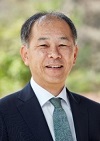
Having background in toxicology and nutrition, he has conducted many experimental and field studies (mostly in Asia) on toxicant-nutrient-life style interactions and their health impacts, including such an interaction between mercury or arsenic and selenium in Asian populations. He has been also engaged in many inter-disciplinary projects/initiatives associated with the issue of sustainability and health; in his recent project, GRENEcoH, in which ‘earth’ observation, ‘human’ observation, and ‘health’ observation data have been combined to solve the challenging issues in the area of ecohealth. He has been serving as president of Society of Health and Human Ecology (JAPAN), vice-president of Society of Human Ecology (international) and was the chair of Human Ecology section in Ecological Society of America.
Dr. Naishen LIANG
Head, Center for Global Environmental Research, National Institute for Environmental Studies, Japan
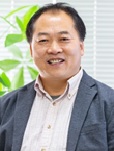
Dr. Naishen Liang received his undergraduate education (1985) in forestry science and MS degree (1988) in ecophysiology in Beijing Forestry University (China) and obtained his PhD degree (1995) in Environmental Science in Niigata University (Japan). He is currently the Head of Global Carbon Cycle Research Section in the Center for Global Environmental Research at the National Institute for Environmental Studies of Japan. His research mainly focuses on terrestrial ecosystem CO2 and CH4 cycling and their response and feedback to climate change as well as the natural and human disturbances. He has designed a multichannel automated chamber system that has been deployed in over 30 different sites to continuous measure soil and/or ecosystem CO2/CH4 fluxes spanning from the Siberian tundra and Alaska boreal forest in the north to the Malaysian tropical rainforest in the south and from Japanese forests in the east to permafrost on Tibet Plateau in the west.
Dr. Yoshiyuki TAKAHASHI
Senior Researcher,Center for Global Environmental Research, National Institute for Environmental Studies, Japan

He earned a bachelor's degree in physical chemistry from Nagoya University. After graduation, he majored marine biogeochemistry at Institute for Hydrospheric-Atmospheric Sciences, Nagoya University. His specialty is the analysis of trace gases and its isotopes, and development of original experimental equipment. He got a job at NIES in 1995 and has participated in the field observation of greenhouse gases in Siberia and other terrestrial ecosystems. Currently, his research focuses on gas exchange between terrestrial ecosystems and the atmosphere. He is a principal investigator of Fuji-Hokuroku Flux Observation site, a base for interdisciplinary research exchanges in Japan. He is promoting not only global house gases but also observational research on short-lived components.
Dr. Hitoshi MUKAI
Director, Center for Climate Change Adaptation, National Institute for Environmental Studies, Japan
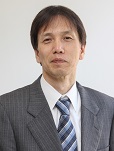
Dr. H. Mukai is a former director of Center for Global Environmental Research (CGER) in National Institute for Environmental Studies (NIES). He was graduated from Waseda University in 1980 and then he had master’s degree in chemical engineering of Tokyo university. In 1982, he started his works in NIES about observation of airborne particulate matter. His works covered various analytical chemistry of particles such as chemical constituents, trace metals and isotope ratios of sulfur and lead. In such fields, he got doctorate in engineering. Then, he moved to CGER for joining to GHG monitoring program. He has monitored CO2 concentration at remote sites in Japan since 1993 and expanded similar monitoring activities over the Pacific and Asian region. In 2018, he officially retired from CGER and move to CCCA, which was newly established in 2018.
Dr. Joon KIM
Professor & Program Director of Future Earth-Korea, Asia Center / Department of Landscape Architecture and Rural Systems Engineering, Seoul National University, Korea
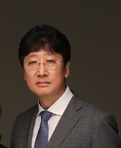
Prof. Joon Kim is leading the Complex Systems Science / Rural Systems Visioneering SDG Lab which focuses on (1) visioneering to accomplish sustainable development goals (SDGs), (2) monitoring of energy, matter and information flows in key ecosystems, (3) understanding of ecosystem ecology based on thermodynamics and information theory, and (4) developing sustainability metrics. He’s currently with Future Earth - Korea at SNUAC as the program director, taking initiative to building Asia-Pacific regional hub on social-ecological health - a transdisciplinary platform based on ‘doughnut economics’ toward sustainability. He was the former chair of AsiaFlux, and currently serves on the advisory board of ‘Journal of Agricultural Meteorology’ and the editorial board of ‘Weather & Climate Extremes’ journal.
Dr. Poonpipope Kasemsap
Director, Horticulture Innovation Lab Regional Center, Kasetsart University, Thailand.
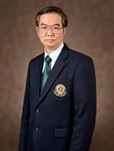
Dr. Poonpipope Kasemsap is the director of the Horticulture Innovation Lab Regional Center at Kasetsart University. He previously served on Feed the Future Horticulture Innovation Lab's International Advisory Board from 2010 to 2019. He is currently an Associate Professor of Crop Eco-Physiology, Faculty of Agriculture at Kasetsart University where he was the former Vice President, Chair of the Horticulture Department, and Director of the International Studies Center. He was the chair of the International Biology Olympiad (2008-2018) and SEARCA’s senior fellow (2017-2020). He served as the 1st National Coordinator of ThaiFlux Network. His research and teaching focuses on the effects of climate changes and air pollutants on the eco-physiology of horticultural crops and on the physiology of horticultural crop production.
Dr. Ismail Parlan
Director, Forest Research Institute Malaysia, Malaysia
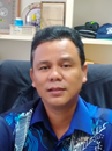
Ismail Parlan, PhD, is currently the Director of Forestry and Environment Division, Forest Research Institute Malaysia (FRIM) at Kepong, Selangor, Malaysia. He obtained his first and second degrees in forest management from the University Putra Malaysia (UPM) and PhD in ecology from the Universiti Kebangsaan Malaysia (UKM). He has serving as research officer at FRIM since 1996. His research areas are mainly on peat swamp forests (PSF) ecosystem covering aspects of forest rehabilitation, reduced impact logging (RIL), ecology, forest fires, and wetland management and conservation. As of 2020, he has been involved in writing up more than 200 publications, including 20 books covering various aspects on forestry, mainly on the wetland forests. He has served in various technical committees on wetland related issues. He was Project Manager for FRIM-ITTO REDDES project on improved forest management and climate change mitigation in 2013-2016.
Dr. Marcin Pawel JARZEBSKI
Project Assistant Professor, Tokyo College, The University of Tokyo, Japan
Marcin Pawel Jarzebski obtained his PhD from in Sustainability Science and Natural Environmental Studies at the University of Tokyo. He currently works on ageing and shrinking societies and their effect on SDGs. He also is engaged with research on food security effects of industrial crop expansion in Sub-Saharan Africa. For his previous work on climate change adaptation capacity development processes in Southeast Asia and biomass estimation and loss over the time in the protected areas in Poland (Nicolaus Copernicus University); and GIS application to disaster management in the flood-prone areas of informal settlements in Manila, Philippines (The University of the Philippines). His main interests are ageing and shrinking society, climate change adaptation, community resilience, community forestry, heat stress on human health, disaster management, GIS and SDGs.
Dr. Haris Gunawan
Deputy of Research & Development, Peatland Restoration Agency, Indonesia
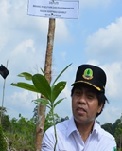
Haris Gunawan is currently Deputy of Research and Development at the Peat Restoration Agency, Republic of Indonesia where he aims to strengthen research & action research cooperation between universities and the research institution; build an integrated peatland restoration model based on the hydrological unity of peatlands; develop peatland monitoring technology and innovations, particularly ground water level monitoring based on ground and satellite imagery analysis; and continue expanding the network of research cooperation both to domestic and foreign parties. He earned his Bachelor degree from Gadjah Mada University in 1997, then pursued his Master at the Bandung Institute of Technology (Indonesia) and Doctorate at Kyoto University (Japan). Recently his research working has been published into International books as following Tropical Peatland Ecosystem, Catastrophe & Regeneration in Indonesia Peatland and Environmental Resources Use and Challenge in Contemporary Southeast Asia.
Dr. Bayarsaikhan UUDUS
Associate Professor, Ecology group in Department of Biology, School of Arts and Sciences of National University of Mongolia, Mongolia
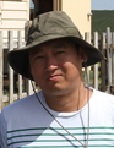
I obtained my Bachelor of Botany and Master of Plant ecology from National University in Mongolia. I received my Ph.D. in Earth science and Remote sensing from Seoul National University, South Korea. From 2015, I served as associate professor at National University of Mongolia. My research interests includes movement and spatial ecology, landscape ecology, conservation biology, vegetation dynamics, climate change effect, water resources, spatial analysis, habitat modelling and remote sensing. My research projects cover sustainable development and conservation of endangered species in Mongolia and biodiversity long term monitoring of protected areas in Eastern Mongolia.
Prof. GuiRui YU
Academician, Institute of Geographic Sciences and Natural Resources Research, Chinese Academy of Sciences, China
Dr. Daisuke NAKAJIMA
Head, Center for Health and Environmental Risk Research, National Institute for Environmental Studies, Japan
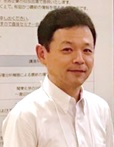
Daisuke Nakajima obtained his Bachelor of Science, Master of Science (M.Sc in Chemistry) and Ph. D in Pharmaceutical Sciences from Tokyo University of Science. He was an Assistant Professor at Faculty of Pharmaceutical Sciences, Tokyo University of Science. Recently, he is a Visiting Professor of Graduate School of Pharmaceutical Sciences, Chiba University, Japan. He is the Executive Director of Japan Society for Environmental Chemistry. He is conducting research on grasping hazardous chemical substances in the environment by integrating chemical analysis and bioassay. And he is also conducting research on developing environmental monitoring methods to be used when chemical substances leak during a disaster.
Dr. Tin Tin Win Shwe
Senior Researcher, Center for Health and Environmental Risk Research, National Institute for Environmental Studies, Japan
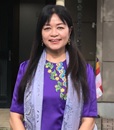
Tin Tin Win Shwe obtained her Bachelor of Medicine and Bachelor of Surgery (M.B., B.S) and Master of Medical Science (M. Med. Sc, Physiology) from University of Medicine (1), Yangon, Myanmar. She received her Ph. D in field of Neuroendocrinology from Yokohama City University Graduate School of Medicine, Yokohama, Japan. Previously, she was a Medical Research Officer at Department of Medical Research, Myanmar and former Assistant Lecturer of Department of Physiology, University of Medicine 1, Yangon, Myanmar. Recently, she is also a Professor of Graduate School of Life and Environmental Sciences, University of Tsukuba, Cooperative Graduate Program. Her research interest is studying the effects of exposure to environmental chemicals or pollutants on brain and behavior. Currently she is doing collaborative research between NIES and Myanmar Medical Universities.
Prof. Dr. Than Htut
Honorary Professor, Preventive and Social Medicine Department, University of Medicine 1 and Occupational Health and Environmental Health Department, University of Public Health, Myanmar
Dr. Than Htut got M.B., B.S. from the University of Medicine 1, Yangon, Myanmar in 1976 and got M. Med. Sc (Occupational Medicine) from National University of Singapore in 1994. In 1995, he was certificated in Air Quality Monitoring (N.E.E.R.I), Nagpur, India. He is a President of Occupational Medicine Society, Myanmar Medical Association, LIVE Environmental Assessment Group, Writers Society, Myanmar Medical Association and a member of Advisory Board of Director, Biodiversity and Nature Conservation Association (BANCA), Global Mercury Assessment Working Group (UNEP Chemicals), Water and Society Working Group, Union of Myanmar National Committee for International Hydrological Programme, Myanmar Water Partnership. He is also a National Program manager of Health City Program (WHO), and Arsenic Mitigation Project (UNICEF).
Dr. Yasuyuki SHIBATA
Vice Director, Environmental Safety Center, Tokyo University of Science , Japan/ Visiting Researcher, NIES, Japan
Dr. Yasuyuki Shibata graduated from Faculty of Sciences, University of Tokyo, and conducted researches at the National Institute for Environmental Studies, Japan, for 38 years. His major research areas are analysis of pollutants, including POPs, heavy metals and stable and radioisotopes, in various environmental matrices, particularly biological samples. Particular research topics include; speciation of arsenic in marine organisms, carbon-14 analysis in environmental samples by accelerator mass spectrometry, and POPs and mercury monitoring in the environment. He moves to Science University of Tokyo from April 2020. He has been working as a member of both national and international scientific committees, including the Regional Organization Group in Asia-Pacific and the Global Coordination Group under the Stockholm Convention, and supports Effectiveness Evaluation of the Convention by collecting environmental monitoring data and compiling regional and global reports.
Dr. Satoshi ENDO
Senior Researcher, Center for Health and Environmental Risk Research, National Institute for Environmental Studies, Japan

Dr. Satoshi Endo received the doctoral degree in natural sciences from Eberhard Karls University of Tübingen, Germany. He then acquired further research and teaching experiences at UFZ-Helmholtz Centre for Environmental Research Leipzig and Osaka City University. Since 2018, he has been a senior scientist at the Health and Environmental Risk Research Center, NIES. His research focus is on the process and property analysis of environmental organic contaminants in relation to their fate, exposure, and effects.
Prof. Dr. Zaw Wai Soe
Rector, University of Medicine 1, Yangon, Myanmar
Professor Zaw Wai Soe is the Rector the University of Medicine (1) Yangon since 2015. He also served as the Rector of the University of Medicine (2) Yangon from 2014 to 2015. In April 2018, he was elected as the President of the Rectors' Committee of Myanmar, which comprises 161 Universities and is part of the higher education reform in Myanmar. Professor Zaw Wai Soe obtained M.B., B.S. degree in 1986 from the University of Medicine (2) Yangon and served as a civil assistant surgeon for 3 years in Myingyan District Hospital. He attained M. Med. Sc. (Orthopedics and Traumatology) from University of Medicine, Mandalay in 1995. In 1997, he passed FRCS (Glasgow) examination and worked as an orthopedic registrar in Falkirk Royal Infirmary, Scotland, for 2 years. After arriving back to motherland in 2000, he worked in Orthopedic Department of the Yangon General Hospital, Yangon Orthopedic Hospital and the University of Medicine (1) Yangon. He obtained Dr. Med. Sc. (Ortho) in 2005 and Diploma in Medical Education in 2006. His is one of the key founders of Spine Surgery and Emergency Medicine in Myanmar. Recently, he is a Yangon Region COVID-19 Contain, Control and Treating Coordination Committee Vice-Chairman.
Prof. Dr. Ohn Mar
Professor and Head, Department of Physiology, University of Medicine 1, Yangon, Myanmar
Prof. Ohnmar is Professor/Head in Department of Physiology, University of Medicine 1, Yangon. She is a chairperson of the Post-graduate Board of Studies (Physiology) for mastery and doctorate course in University of Medicine 1, Yangon and a member of the Post-graduate Board of Studies (Physiology) for mastery and doctorate course in other 4 medical universities in Myanmar. She is also a member of the Research and Ethics committee, University of Medicine 1, Yangon. She has experience in supervision of many master student research and doctoral student research. She is doing a collaborative research with NIES on outdoor as well as indoor air quality assessment in Yangon city and some major cities in Myanmar. She is now doing the air pollution research on health impact and molecular changes on exposure to PM2.5.
Dr. Soe Min
Senior Consultant Psychiatrist/ President-elect, Mental Health Society, Myanmar Medical Association, Myanmar
Dr. Soe Min got M.B.,B.S from the University of Medicine 1, Yangon, Myanmar in 1986. He got diploma degree (Psychological Medicine) and master degree (Psychiatry) from the same university in 1994 and 2001 respectively. He is a senior consultant psychiatrist and the President-elect of Mental Health Society, Myanmar Medical Association. He is also the General Secretary of Alzheimer’s Association Myanmar which is one of the member countries of Alzheimer’s Disease International. He is serving in academic, clinical and research works. He is a co-author of manuals for medical students and basic health staffs, and Myanmar Chapter of the Routledge Handbook of Psychiatry in Asia (2016). He was a team leader for the translation and development of Mental Health Global Action Plan-Intervention Guide version 1 (WHO) in Myanmar language. He is also interested in public education activities related to mental health.
Ms. Kakuko Nagatani-Yoshida
Regional Coordinator for Chemical, Waste and Air quality, Asia and the Pacific Office, UN Environment Programme, Thailand
Prof. Dr. Chunmei Li
Professor, Nanjing Agricultural University, China
Dr. Chunmei Li is a professor in Animal Environmental Physiology and Nutrition, at the College of Animal Science & Technology in Nanjing Agricultural University, China. She obtained PhD degree from the United Graduate School of Veterinary Sciences, Tokyo University of Agriculture and Technology, Japan in 2007. Afterwards she worked as a JSPS postdoctoral research fellow in Research Center for Environmental Risk, National Institute for Environmental Studies (NIES), Japan from 2007-2009. In June 2009, she joined Nanjing Agricultural University as a Higher Level Talented Scientist. She and her group have published more than 100 peer reviewed journal articles. Her research interest is the environmental monitoring and control in animal housing, and food animal welfare-related air pollution. She is now doing the air pollution research on food animal health impact and molecular changes on exposure to PM2.5.
Dr. Ryo HONDA
Associate Professor, Kanazawa University, Japan
Ryo Honda obtained his PhD in Environmental Engineering at University of Tokyo in 2005, and then became an Assistant Professor working on interdisciplinary sustainability science, and on an international cooperation project for the development of water reuse technology. He took up his current position in 2012. His areas of interest is microbiology in wastewater treatment and water environment and membrane-applied biological processes for resource recovery. Currently he intensively works for fate of antibiotic resistant bacteria in wastewater and wastewater-based epidemiology for COVID-19.
Dr. Hanh Thi DUONG
Researcher, Institute of Environmental Technology, Vietnam Academy of Science and Technology, Vietnam
My name is Hanh Thi DUONG, a researcher at the Institute of Environmental Technology, Vietnam Academy of Science and Technology. I have been working on the organic micro-pollutants in water, sediment and ambient air in Vietnam, especially focusing on the big cities, by using an automated identification and quantification systems on GCMS and LCQTOFMS, which can simultaneously determine 1500 organic pollutants. Since air pollution in Vietnam has becoming more serious recent years therefore my current study is focusing on organic micro-pollutants (OMP) in ambient air particulate matter (APM) in Hanoi. Over a hundred chemicals was detected in APM in Hanoi in our study, including PAHs, current use pesticides, PPCPs, sterols, phthalates, flame retardants. This is the first comprehensive study on the multiple OMPs in APM in Vietnam, and many chemicals were detected for the first time in the literature. At present, we are studying on OMP in PM2.5 in Hanoi and planning to submit a manuscript next year.
Dr. Tomohiro TASAKI
Head, Center for Material Cycles and Waste Management Research, National Institute for Environmental Studies, Japan
Dr. Tomohiro Tasaki is the head of Sound Material Cycle Section of National Institute for Environmental Studies, Japan. He has been conducting a variety of studies for 3Rs (Reduce, Reuse, Recycle) with his expertise of systems engineering and policy science, e.g., development of material flow model of municipal waste, evaluation of effectiveness of recycling acts, survey on the perceptions of extended producer responsibility, and national sustainable development indicators. His knowledge covers all the Japanese recycling acts and also diverse research approaches. He has been a number of ministerial committee members in this field, including that of Electrical Home Appliance Act, Sound-Material Cycle Plan, and Waste management Act. He was a visiting professor of the University of Tokyo for four years, and currently the theme 2 leader of PECoP-Asia project (a SCP project).
Dr. Keisuke NANSAI
Head, Center for Material Cycles and Waste Management Research, National Institute for Environmental Studies, Japan
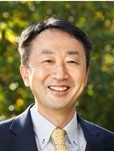
Keisuke Nansai is Head of the International Material Cycles Section at the Centre for Material Cycles and Waste Management Research of National Institute for Environmental Studies. He is an adjunct professor at the Graduate School of Environmental Studies at Nagoya University in Japan. He is a panel member of UNEP International Resource Panel and serving as an associate editor of an academic journal, Resources, Conservation & Recycling. He has been specializing in environmental systems analyses based on life-cycle thinking, and applying an input-output analysis, life-cycle analysis, material flow analysis and network analysis to environmental and social assessments of technologies, human lifestyle, and policies. His present research interests include the nexus of planetary health and resource productivity, resource criticality of technologies for climate change mitigation/adaptation, and future global material flow and stock harmonized with the planetary health concept.
Dr. Aya YOSHIDA
Senior Researcher, Center for Material Cycles and Waste Management Research, National Institute for Environmental Studies, Japan
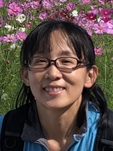
Aya Yoshida is a senior researcher at the Center for Material Cycles and Waste Management Research, NIES. Her educational background is environmental economics (B.A.), international studies (M.A.) and urban engineering (Ph.D). She currently works on the China ban’s impact on the waste recycling industry in Asia, sustainable lifestyles, and sustainable consumption and production in Southeast Asia.
Mr. Ryu KOIDE
Researcher, Center for Material Cycles and Waste Management Research, National Institute for Environmental Studies, Japan
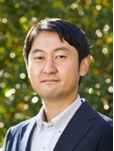
Ryu Koide is a researcher with the National Institute for Environmental Studies (NIES), Japan, focusing on quantitative research on the transition towards decarbonized and circular societies. With his background in resources and environmental engineering, public policy, and data science, his research emphasizes the interdisciplinary approach, combining the methodologies of industrial ecology, such as life cycle assessment and material flow analysis, and policy and behavior sciences. His research covers consumer lifestyles, product service systems, and policy design for sustainable consumption and production, aiming for facilitating the sustainability transformation of lifestyles and material cycles considering the life cycle impacts and planetary boundaries. His recent research topics include the quantification of carbon footprint reduction impacts of lifestyle changes, micro data analysis of consumer lifestyles and environmental impacts, scenario development of future consumption patterns towards the 1.5-degree target of the Paris Agreement, and integrated research of life cycle assessment and behavior simulation on product service systems.
Dr. Hiroyuki ISHIMORI
Senior Researcher, Center for Material Cycles and Waste Management Research, National Institute for Environmental Studies, Japan
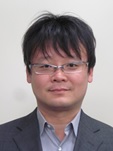
Hiroyuki Ishimori, Ph. D., is a senior researcher at the National Institute for Environmental Studies, Japan. He specializes in mathematics and numerical simulations in geoenvironmental engineering. His skills are used for developing the safe utilization and final disposal techniques for contaminated soils, waste, byproduct and so on. He is currently studying on the long-term deterioration of barrier performance of adsorption reagent and impermeable material, reinforced concrete due to chemical attack. Numerical simulations considering the long-term deterioration will provide the effective countermeasure to protect the environment from various chemical pollutions.
Dr. Yusuke KISHITA
Lecturer, Department of Precision Engineering, School of Engineering, The University of Tokyo
Dr Yusuke Kishita is Lecturer at Department of Precision Engineering, School of Engineering, the University of Tokyo. He was appointed as one of The University of Tokyo Excellent Young Researchers in 2017. Prior to the current position, he worked as Research Scientist at National Institute of Advanced Industrial Science and Technology (AIST) and Assistant Professor at Osaka University. In the period of August 2019-February 2020, he was Guest Researcher at Technische Universität Braunschweig, Germany and Visiting Academic Fellow at University of Cambridge. With the background of life cycle engineering and design engineering, his research interests include scenario design for sustainable futures, circular economy, roadmap design, and backcasting. He received a number of awards and honors, such as the Young Scientists’ Prize of the Commendation for Science and Technology by the Minister of Education, Culture, Sports, Science and Technology 2019. He holds MSc and Ph.D. in mechanical engineering from Osaka University, Japan.
Dr. Panate MANOMAIVIBOOL
Head of Research Center on Circular Economy for Waste-free Thailand (CEWT), School of Science, Mae Fah Luang University, Thailand
Panate Manomaivibool holds a Ph.D. in Engineering from the International Institute for Industrial Environmental Economics (IIIEE) at Lund University, Sweden. He joined Mae Fah Luang University (MFU) in 2011 and is now an Assistant to the President on sustainability. He also leads a research center on “Circular Economy for Waste-free Thailand” (CEWT) at the School of Science.
Dr. Yingchao CHENG
Research Associate, Center for Material Cycles and Waste Management Research, National Institute for Environmental Studies, Japan
Cheng obtained her Ph.D. in Environmental Science and graduated from Kyoto Univeristy in 2020. In her earlier work, Cheng thoroughly studied the behavior of heavy metals in sewage sludge mono-incineration and torrefaction in Japan. She focused especially on the effect of temperature variations on the transfer, evolution and distribution of different mercury species. She is currently employed at the National Institute for Environmental Studies where she studying, modeling, and assessing global mercury flow. In particular, she is formulating and developing a detection method that can be used to identify mercury flow, from the formal transactions of mercury-containing products, to the informal and sometimes illegal artisanal and small-scale gold mining sectors. Her research is primarily focused on: municipal solid waste management, sewage sludge thermal treatment, mercury adsorptive removal using activated carbons, and global mercury flow assessment.
Dr. Mushtaq MEMON
Regional Coordinator for Resource Efficiency, Asia and the Pacific Office, UN Environment Programme, Thailand
Dr. Memon is working with United Nations Environment Programme as a Regional Coordinator for Resource Efficiency in Asia Pacific Office located in Bangkok. He is supporting resource efficiency, sustainable consumption and production, green economy, green financing, sustainable public procurement, sustainable tourism, sustainable industries and various areas for Asia and the Pacific. He is also implementing EU funded SWITCH-Asia Phase 2 component by UN Environment to support Sustainable Development Goals (SDGs), especially SDG 12 on sustainable consumption and production in the region.
Till end of 2016, Dr. Memon was working at UN Environment’s office in Osaka, Japan (International Environmental Technology Centre (IETC). He has more than 25 years of intensive experience in project planning and management. He has implemented various international projects in many different sectors including seaports, water supply, and waste management with a focus on international cooperation for environmental services and sustainable development. Dr. Memon has a Doctorate degree in environmental economics from Hiroshima University in Japan, a Master’s degree in national development and project planning from University of Bradford in UK, a postgraduate diploma in Transport from Karachi University and Chartered Institute of Transport, Bachelors in civil engineering from Mehran University of Engineering and Technology Jamshoro and schooling at Cadet College Petaro in Pakistan. He has also published various papers in international journals.
Dr. Yuko OSHITA
Project Researcher, Institute for Future Initiatives, The University of Tokyo, Japan
Yuko Oshita obtain her Bachelor of Arts and Sciences from 21st Century program of Kyushu University, Japan in 2008. She received her Master and Ph.D. in Economics from Kyushu University, Japan in 2010 and 2013 respectively. She joined graduate school of maritime science of Kobe University in 2013 as assistant professor and promoted to be Senior Lecturer in 2015. Then she joined Institute for Future Initiatives, the University of Tokyo as project researcher in 2019. Her research fields and interests include environmental economics, econometrics, industrial and economic structure, industrial ecology, life cycle assessment, sustainability, regional economy, interdisciplinary science and circular economy.
Prof. Dr. HO Chin Siong
Professor, Faculty of Built Environment and Surveying, Universiti Teknologi Malaysia, Malaysia
Prof. Dr. Ho Chin Siong graduated with BSc Urban Regional Planning, UTM, MSc Construction Management, Heriot Watt University, UK, Doctor Engineering, System Information Engineering, Toyohashi University Technology Japan and Senior Management Development Program at Harvard Business School (Malaysia). Presently, he is a Professor at Faculty Built Environment and Surveying, and Director of Low Carbon Asia Centre UTM. He is registered Town Planner and Chartered Member of Chartered Institute of Logistic and Transport (Malaysia). He specialises in climate action planning, urban sustainability, environmental modelling, transportation, housing planning and management. He previously served as Project Manager for Low Carbon Society for Asian Region SATREPS project and has done notable research on the Climate Action Plans for Kuala Lumpur City Hall, Putrajaya Corporation, Pengerang City and local authorities within Iskandar Malaysia region and 5 Pilot Malaysian Cities funded by Global Covenant of Mayors (GCOM) Brussels.
Dr. Soojeong Myeong
Senior Research Fellow, Korea Environment Institute, Korea
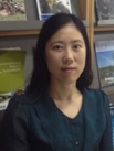
Dr. Soojeong Myeong is a Senior Research Fellow at the Korea Environment Institute. She received her Ph. D. in Environmental and Resource Engineering from State University of New York, U.S. She is currently in charge of International Environmental Cooperation, Climate Change Adaptation, and Environmental Education at the Institute. She is a member of Scientific Planning Group for the Asia-Pacific Network (APN) for Global Change Research. She used worked at US Forest Service and has professional experiences in environment and climate change. She is also developing the international standard for climate change adaptation with ISO (International Standard Organization). She was one of the lead authors of the IPCC special report on extreme events and adaptation (SREX) in 2012 and the recent special report on land (SRCCL) in 2019. She is currently the review editor for IPCC 6th Assessment report.
Prof. Kensuke FUKUSHI
Vice Director, Institute for Future Initiatives, The University of Tokyo, Japan
Kensuke Fukushi is Professor and Vice Director of the Institute for Future Initiatives (formerly Integrated Research System for Sustainability Science, IR3S), The University of Tokyo (UTokyo). He is also an Academic Programme Officer at the United Nations University Institute for the Advanced Study of Sustainability.
His research interests include environmental engineering, risk assessment, climate change effect, water resource, biological technology, membrane technology. His research projects cover the integrated climate assessment – risks, uncertainties and society, establishment of research platform for developing models to predict future health risks posed by changes in climate, land use and population, development of international network for sustainability science and on health risk assessment in urban area.
Dr. Yuichi MORIGUCHI
Vice President, National Institute for Environmental Studies, Japan
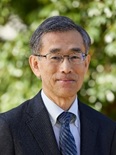
He joined National Institute for Environmental Studies (NIES) in 1982, engaged in wide range of environmental research at NIES until 2011. After appointed to the Director of the Research Center for Material Cycles and Waste Management of NIES for 2005-2011, he moved to the University of Tokyo as of April 2011. In his early career, he had also worked for the Environment Agency of Japan and for the OECD Environment Directorate in Paris. He chaired the Working Group on Environmental Information and Outlooks of the OECD for 2003-2008, contributed to the UNEP International Resource Panel for 2007-2016 as one of the inaugural members. He was awarded the 2013 Society Prize of International Society for Industrial Ecology. He is currently the president of The Institute of Life Cycle Assessment, Japan. His research field covers Industrial Ecology, Post-disaster environmental management, etc.
He is vice president of NIES since April 2019, and holds cross appointment to professor at the Department of Urban Engineering, Graduate School of Engineering, The University of Tokyo.
Prof. Akimasa SUMI
Professor Emeritus, The University of Tokyo / Project Professor, Institute for Future Initiatives, The University of Tokyo, Japan
He was born in 1948 at Gifu City. He entered the University of Tokyo in 1967 and graduated from the department of Physics in 1971. After a two-year master course, he joined the Japan Meteorological Agency. He got a D.SC from UT in 1985 and moved to UT as an associate professor in the department of geophysics. In the University, he was engaged in many research fields, such as ENSO related research, and model development projects. He established CCSR (Center for Climate System Research) in 1991 and also engaged in Sustainability Science Project in 2001. He retired in 2013 and now is a Professor Emeritus. He is a former President of the National Institute of Environmental Studies (NIES).
Prof. Tsuyoshi FUJITA
Professor, Department of Urban Engineering, The University of Tokyo
Principal Researcher, National Institute for Environmental Studies, Japan
Dr. Fujita is a Professor of the Graduate School of Engineering, the University of Tokyo from 2020. He is a former Director of Social Environmental Systems Research Center, National Institute for Environmental Studies (NIES), Japan. He is currently a Principal Researcher of NIES and an Appointed Professor of Tokyo Institute of Technology in the field of applied energy. His research fields are eco industrial development, low carbon city, urban environment simulation system, circular economy planning and spatial LCA, where he has published 190 journal papers. He is engaged in several national research projects to develop integrative urban technology and policy simulation system for Japanese and Asian cities and regions. He is a member of the National Council SDGs Future City Initiative and Eco-model City Promotion of Japan. He is also engaged in academic positions such as a counselor of the International Society of Industrial Ecology, Chair of Editorial Board, Journal of Environmental Systems Research, Japan Society of Civil Engineering.
Dr. Naoya TSUKAMOTO
Director, AIT Regional Resource Centre for Asia and the Pacific, Thailand
Dr. Naoya Tsukamoto started his professional career at the Ministry of the Environment of Japan in 1985. During 2005-2008, he served as the Head of Japanese Delegation to the IPCC/AR4. During 2014-2016, he worked for the Institute for Global Environmental Strategies (IGES) as Secretary-General/Principal Researcher. During 2016-2018, he serves as Project Director under the United Nations University, Institute for the Advanced Study of Sustainability (UNU-IAS). He is currently Director of Regional Resource Center for Asia and the Pacific (RRC.AP) in Asian Institute of Technology (AIT), Bangkok, Thailand.
Dr. Toshihiko MASUI
Head, Center for Social and Environmental Systems Research, National Institute for Environmental Studies, Japan
Toshihiko Masui is Head of Center for Social and Environmental Systems Research, National Institute for Environmental Studies (NIES), and he is also Visiting Professor of School of Engineering, Tokyo Institute of Technology. He got his PhD from Osaka University in 1997. He is in charge of development of Asia-Pacific Integrated Model (AIM) in order to assess climate mitigation policies and its application for sustainable society including low carbon development. He is also the member of some committees of the Central Environment Council, and a lead author of IPCC AR6 WG3 (Chapter 4: Mitigation and development pathways in the near- to mid-term).
Dr. Yuji MASUTOMI
Senior Researcher, Center for Climate Change Adaptation, National Institute for Environmental Studies, Japan
Dr. Yuji Masutomi is a senior researcher at Center for Climate Change Adaptation (CCCA) in NIES. Prior to joining CCCA on April in 2020, he had been an associate professor at Ibaraki University. He obtained Ph.D. in global environmental studies from Kyoto University in 2007, and M.S. in physics from Nagoya University in 2001. His current research interest is climate change impact and adaptation assessment on an agricultural sector from local to global scales. He is also engaging the development of AP-PLAT, which is the information platform on climate change adaptation for Asia-Pacific region.
-
January 19 – 20, 2021, Online Webinar style (Zoom)
-
January 21 – 22, 2020, at Novotel Yangon Max Hotel, Yangon, Myanmar
-
January 23 – 24, 2019, at Pan Pacific Hanoi, Vietnam
-
January 23 – 24, 2018, at Seri Pacific Hotel, Malaysia
-
January 26 – 28, 2017, at Udayana University, Indonesia
-
January 27 – 28, 2016, at Asian Institute of Technology, Thailand


